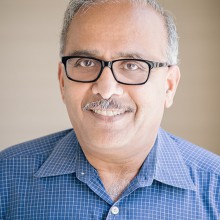Multiple Uses of Correlation Filters for Biometrics
Determining the identity of a human is critical in many applications including access control and surveillance. Most current human authentication systems are password based making them susceptible to problems such as forgetting the password or passwords being stolen. One way to overcome these problems is to employ biometrics (e.g., fingerprints, face images, iris images, etc.) for authentication. Many biometric modalities produce images and biometric verification (1:1 matching) and identification (1:N matching) involves matching these images. Many conventional biometric image matching methods are based on segmenting the regions of interest, extracting the features in the image domain and applying classifiers to separate these features. However, there are advantages to using signal processing methods that work in the spatial frequency domain. Correlation filters are one class of frequency domain-based methods that offer benefits such as shift-invariance (i.e., the object of interest can be off-center), no need for segmentation, graceful degradation and closed-form solutions. This talk will provide an overview of correlation filter design approaches and their applications in biometrics including matching patterns, image alignment, providing information for graphical models, creating cancellable biometrics and biometric encryption.

Vijay Kumar
Professor, Electrical and Computer Engineering Department, Carnegie Mellon University on November 4, 2011 at 1:00 PM in Engineering Building II, Room 1230
Prof. B.V.K. Vijaya Kumar received his Ph.D. in Electrical Engineering from Carnegie Mellon University (CMU), Pittsburgh and since 1982, he has been a faculty member in the Electrical and Computer Engineering (ECE) Department at CMU where he is now a Professor and the Associate Dean for the College of Engineering. He served as the Associate Head of the ECE Department and also as its Acting Department Head. Professor Kumar's research interests include Pattern Recognition (for automatic target recognition and biometrics applications) and Coding and Signal Processing for Data Storage Systems and for Digital Communications. He has authored or co-authored over 500 technical papers, fifteen book chapters and one book entitled Correlation Pattern Recognition. He served as a Topical Editor for Applied Optics and as an Associate Editor of IEEE Trans. Information Forensics and Security. Professor Kumar is a Fellow of IEEE, a Fellow of SPIE, a Fellow of Optical Society of America (OSA) and a Fellow of the International Association of Pattern Recognition (IAPR).
The Department of Electrical and Computer Engineering hosts a regularly scheduled seminar series with preeminent and leading reseachers in the US and the world, to help promote North Carolina as a center of innovation and knowledge and to ensure safeguarding its place of leading research.
